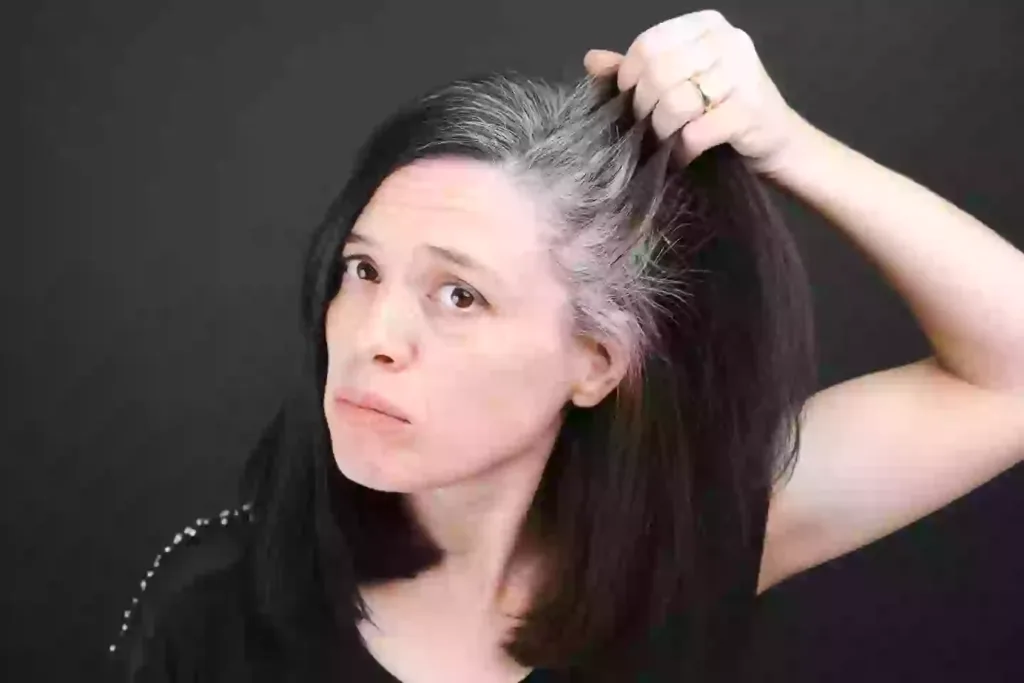The Shocking Effect of Just Five Days of Stress on Your Body – And How It Shows on You

What Happens to Your Body When Stress Takes Over?
Stress is an inevitable part of life. We all experience it at some point—whether it’s the pressure of meeting deadlines, juggling responsibilities, or dealing with personal struggles. However, while short-term stress may seem manageable, prolonged stress can have surprising and even bizarre effects on your body.
Many of us associate stress with feelings of anxiety or tension, but did you know that just five consecutive days of extreme stress can start visibly transforming your body? And no, we’re not just talking about fatigue or headaches—stress can physically change the way you look, sometimes in unexpected ways.
When stress takes hold and doesn’t let up, it can disrupt your body’s normal functions, affecting everything from your skin to your metabolism. If left unmanaged, it can lead to more serious health conditions like high blood pressure, digestive problems, and even heart disease. While the mental toll of stress is well-documented, its physical effects are often overlooked until they become hard to ignore. What’s even more concerning is that others may begin to notice these changes before you do.
📌 Discover how stress influences your mental and physical health
Mental Health Expert Reveals How Stress Physically Impacts You
According to Colleen Marshall, a licensed marriage and family therapist in California, extended stress doesn’t just affect your mind—it takes a serious toll on your physical appearance as well.

From uncontrollable breakouts and weight fluctuations to chronic headaches and sleep disturbances, prolonged stress manifests in ways that can make you feel exhausted, unwell, and disconnected from yourself.
However, one of the most startling effects she highlighted is that stress can turn your hair grey—and fast.
Stress doesn’t discriminate. Whether you’re a student cramming for exams, a professional dealing with work pressure, or a parent managing a busy household, prolonged exposure to stress will eventually manifest physically. The body’s fight-or-flight response is designed to help us react to immediate danger, but when activated for too long, it starts to work against us. The more prolonged the stress, the more noticeable the physical toll becomes.
Many people dismiss symptoms like frequent headaches, fatigue, or mood swings as minor inconveniences, but they can be warning signs that stress is taking a toll on your body. If left unchecked, this can lead to more permanent changes that go beyond temporary discomfort.
➡️ Discover how stress influences your mental and physical health here
The Strange Connection Between Stress and Grey Hair
You may have heard stories of people suddenly developing grey hair after traumatic experiences, but science backs up this phenomenon.
When the body is under extreme stress, it releases norepinephrine, a chemical that plays a key role in the “fight or flight” response. Along with increased cortisol levels, this flood of stress hormones can lead to rapid changes in hair pigmentation.
According to recent studies, some of which were conducted on mice, exposure to extreme stress can cause hair to lose its pigment in as little as five days.
How does this happen?
🔬 Researchers at Harvard University studied the effects of stress on mice by exposing them to emotional distress for five consecutive days. They found that stress depleted melanocyte stem cells, which are responsible for hair pigmentation. Once these cells were damaged, there was no way for the body to regenerate them—leading to hair turning grey or even completely white.
📌 Read the Harvard study on stress and grey hair
Can This Happen to Humans in Just Five Days?
The study on mice demonstrated rapid greying due to stress, but human hair cycles are much longer, meaning it may take weeks or months to see noticeable effects. However, individuals experiencing high levels of stress over just a short period of time may still see a difference in their hair.
Factors such as age, genetics, and overall health can also influence how quickly stress-induced greying appears in humans.
More Surprising Ways Stress Physically Manifests
Stress doesn’t just affect your hair—it can show up in various alarming ways.

Here are some additional physical changes that prolonged stress can cause:
1. Skin Problems – Breakouts, Eczema, and Psoriasis
When you’re under stress, your body produces excess cortisol, which increases oil production in your skin. This can lead to:
✔️ Acne breakouts even if you usually have clear skin
✔️ Psoriasis or eczema flare-ups due to increased inflammation
✔️ Dry, irritated skin as stress reduces your skin’s ability to retain moisture
📌 How stress affects your skin – Learn from dermatologists
2. Weight Fluctuations – Unintentional Gain or Loss
Stress can impact your metabolism, leading to sudden weight loss or gain. Some people overeat as a coping mechanism, while others experience loss of appetite.
➡️ Cortisol plays a major role in stress-induced weight gain by encouraging the storage of fat, especially around the abdomen.
📌 Find out why stress makes you gain weight
3. Sleep Disruptions – Insomnia or Excessive Fatigue
Stress affects your ability to fall and stay asleep, leading to:
✔️ Insomnia – racing thoughts keep you awake
✔️ Restless sleep – tossing and turning at night
✔️ Excessive tiredness – feeling exhausted despite sleeping
📌 How stress disrupts sleep – Sleep Foundation
4. Brittle Nails and Hair Thinning
Stress can weaken your nails, making them:
✔️ Brittle and prone to breaking
✔️ Develop ridges or lines due to interrupted growth cycles
Additionally, chronic stress can lead to hair thinning or shedding—a condition known as telogen effluvium.
📌 Learn about stress-induced hair loss
What You Can Do to Manage Stress and Prevent These Effects
If stress is wreaking havoc on your body, don’t worry—there are ways to reverse or prevent these changes.
1. Practice Stress-Reduction Techniques
✔️ Try deep breathing exercises and meditation
✔️ Engage in regular physical activity to release tension
✔️ Prioritize self-care through hobbies and relaxation
📌 Explore mindfulness techniques to reduce stress
2. Improve Sleep Quality
✔️ Stick to a consistent sleep schedule
✔️ Avoid screens before bed
✔️ Try relaxation techniques like warm baths or white noise
📌 Healthy sleep habits – National Sleep Foundation
3. Eat a Balanced Diet and Stay Hydrated
✔️ Consume antioxidant-rich foods to combat oxidative stress
✔️ Drink plenty of water to keep your body hydrated
✔️ Avoid excess caffeine and processed foods that worsen stress
📌 How diet affects stress levels
Final Thoughts: Don’t Let Stress Take Over Your Health
Stress is an unavoidable part of life, but when it lingers for days or weeks, it can take a visible toll on your body. From premature grey hair to breakouts, brittle nails, and weight fluctuations, prolonged stress can transform your appearance in surprising ways.
While it may not be possible to eliminate stress entirely, learning how to manage it through healthy habits can reduce its impact on your body and mind.
The good news? Many of these effects can be prevented or reversed if you recognize the signs early and take proactive steps. Whether it’s through lifestyle changes, relaxation techniques, or professional support, making stress management a priority can significantly improve both your mental and physical health.
➡️ Have you ever noticed stress affecting your appearance? Share your thoughts in the comments or tag someone who needs to read this!
📌 Learn more about stress management from the American Psychological Association
Featured Image Credit: Getty Images/Maskot






